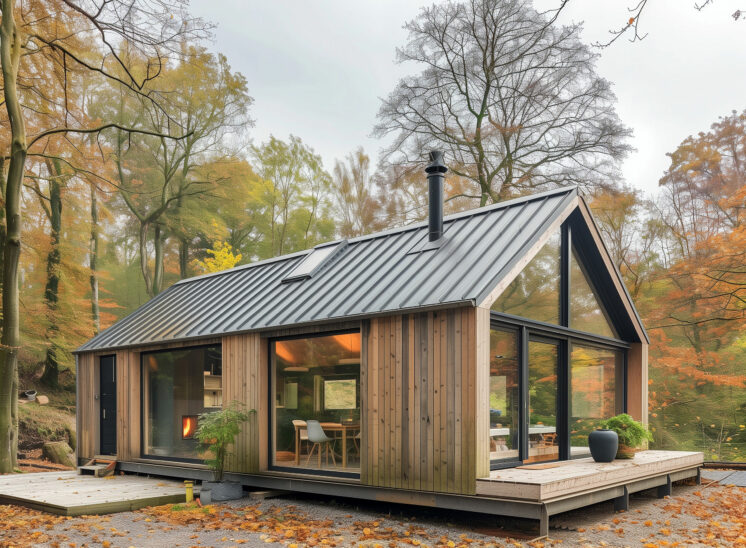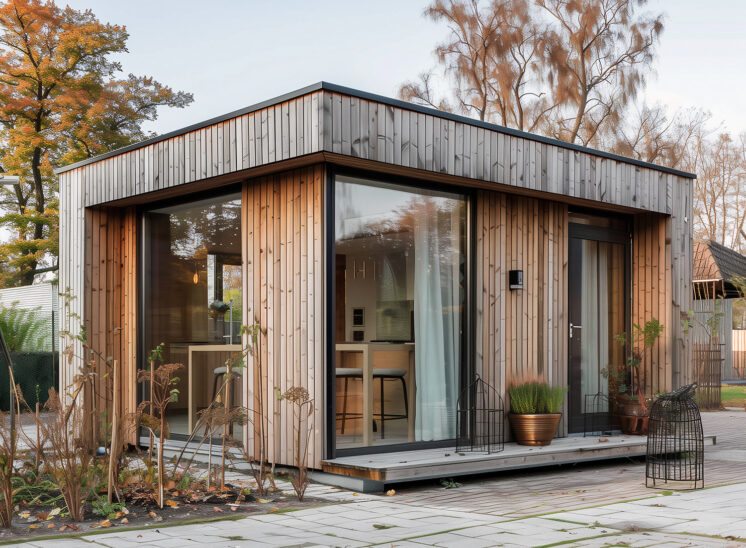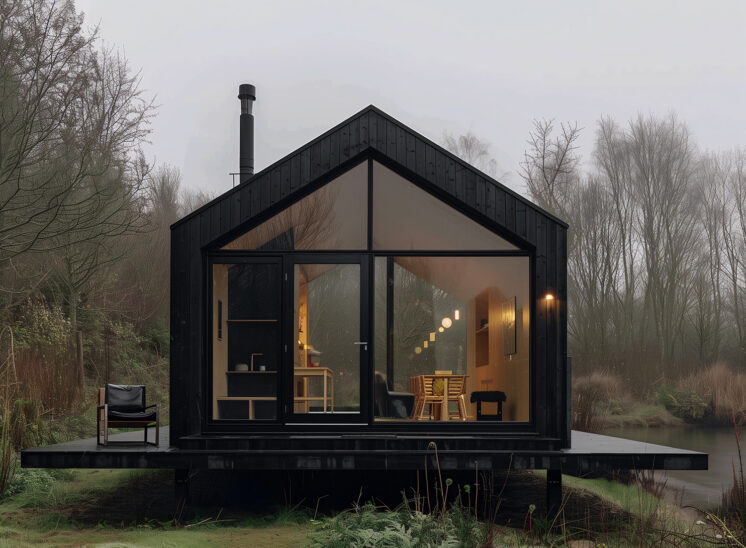
Understanding the Certificate of Lawfulness for Mobile Homes in the UK
When considering placing a mobile home or caravan on your property, one of the most crucial steps is ensuring that the installation and use are lawful. This is where a Certificate of Lawfulness comes into play. Unlike traditional planning permission, which is granted based on a decision-making process, a Certificate of Lawful Development (CLD) for a mobile home is based on whether the location and use conform to legal requirements.
What is a Certificate of Lawfulness?
A Certificate of Lawfulness is an official document issued by your local council that confirms the legality of a particular use or development on your land. It can cover a wide range of developments, including the siting of a caravan or mobile home, and is particularly useful when the legality of an existing or proposed use is in question.
How Does it Differ from Planning Permission?
For an annex, planning permission is typically required, and this is granted based on a variety of factors, including the potential impact on the surrounding area. However, for a mobile home, planning permission is not necessarily required if the use and location are lawful and if the structure meets the definition of a ‘caravan’ as outlined by the Caravan Sites and Control of Development Act 1960.
The key difference lies in the approach:
•Planning Permission is a decision-making process considering various planning policies and impacts.
•Certificate of Lawfulness is a legal determination based on whether the use or development is compliant with existing laws.
Criteria for Obtaining a Certificate of Lawfulness
To obtain a Certificate of Lawfulness for the siting of a mobile home, the following conditions typically need to be met:
1.Lawful Location: The mobile home must be located within the residential curtilage of the property and not on land designated as a conservation area, national park, or other protected area.
2.Lawful Use: The use of the mobile home must be incidental to the main dwelling. This means it should not be used as a separate residence rented out to others but should serve as additional accommodation for family members, such as a granny annex.
3.Conformity to Definition: The structure itself must conform to the legal definition of a ‘caravan’ under the Caravan Sites and Control of Development Act 1960. This includes considerations of size, mobility, and construction.
Application Process
The process to apply for a Certificate of Lawfulness involves submitting evidence to your local planning authority that demonstrates the legality of the proposed use. This may include:
•Site plans and location maps.
•Details on how the mobile home meets the definition of a caravan.
•Information on the intended use of the mobile home.
Once the application is submitted, the council will assess whether the evidence provided demonstrates that the development or use is lawful. If satisfied, they will issue the certificate.
Why is it Important?
Obtaining a Certificate of Lawfulness provides peace of mind, ensuring that your mobile home or caravan is legally sited and used. It can also be an essential document if you decide to sell your property, as it confirms the legality of any mobile home or caravan on the site.
Modern Mobile Homes: A Luxurious Option
Many people still associate mobile homes with outdated designs and substandard living conditions. However, modern mobile homes have come a long way. Today’s residential park homes can offer all the luxury and comfort of traditional homes, with features such as high-quality insulation, modern designs, and durable construction. These homes can provide a cost-effective and flexible solution for those looking to expand their living space without the need for a traditional building extension.
A Certificate of Lawfulness is a critical step in ensuring that your mobile home is legally compliant. By understanding the requirements and following the proper procedures, homeowners can enjoy the benefits of a mobile home as a residential annex without the complexities of traditional planning permission.
A Comprehensive Guide to Obtaining a Certificate of Lawfulness for Mobile Homes in the UK
The use of mobile homes or caravans as residential annexes within the garden of a house is an increasingly popular option for homeowners looking to expand their living space. However, to ensure that this usage is legally compliant, homeowners must consider obtaining a Certificate of Lawfulness. This certificate acts as proof that the placement and use of the mobile home on their property is lawful under current UK planning regulations.
Understanding the Certificate of Lawfulness
A Certificate of Lawfulness is an official document issued by the local council that confirms that an existing or proposed use of land or buildings is lawful. It can be applied for when you want to establish that a particular development does not require planning permission.
Differences Between Planning Permission and Certificate of Lawfulness
While planning permission is typically required for building or extending homes, mobile homes often fall under different regulations. A Certificate of Lawfulness is sought when the use of a mobile home as an annex is being legally challenged or questioned. It serves as a legal confirmation that the use is lawful, based on compliance with specific criteria rather than the subjective decision-making process of a planning application.
Key Criteria for a Certificate of Lawfulness
1.Location and Zoning: The mobile home must be sited within the residential curtilage of the main property, meaning it must be within the garden or grounds that are used for domestic purposes. The site must not be in a conservation area, national park, or other protected areas where development rights are more restricted.
2.Use: The mobile home should be used in a manner that is incidental to the enjoyment of the main dwelling. This typically means it is used by family members as additional accommodation rather than being rented out or used as a separate dwelling.
3.Conformity to the Definition of a Caravan: The mobile home must meet the legal definition of a caravan under the Caravan Sites and Control of Development Act 1960. This includes size restrictions, mobility, and whether it is constructed in a way that it can be moved.
The Application Process
To apply for a Certificate of Lawfulness, you will need to submit evidence to your local planning authority that supports your claim that the use or development is lawful. This might include:
•Detailed site plans and layout drawings.
•A statement outlining how the mobile home complies with the legal definition of a caravan.
•Information about the use of the mobile home in relation to the main dwelling.
The planning authority will review the evidence to determine whether the use or development complies with the law. If satisfied, they will issue a Certificate of Lawfulness.
Why is a Certificate of Lawfulness Important?
Having a Certificate of Lawfulness provides peace of mind by legally confirming that the use of a mobile home on your property is compliant with UK planning laws. It can also be crucial if you plan to sell your property, as it reassures potential buyers that the mobile home is lawfully sited and used.
Modern Mobile Homes: A Viable Residential Option
Modern mobile homes have evolved significantly from the stereotypical image of temporary or substandard accommodation. Today, they offer high levels of comfort, with features like central heating, double glazing, and high-quality insulation, making them a viable and attractive option for additional residential space.
A Certificate of Lawfulness is essential for anyone considering the use of a mobile home as a residential annex. By understanding the legal framework and ensuring compliance, homeowners can expand their living space with confidence, knowing that their mobile home is legally sound.










